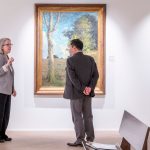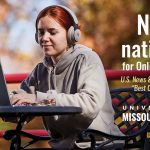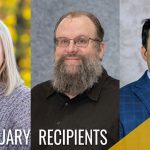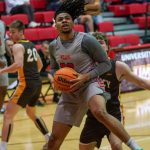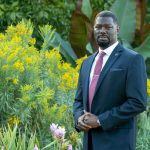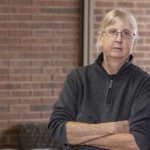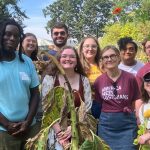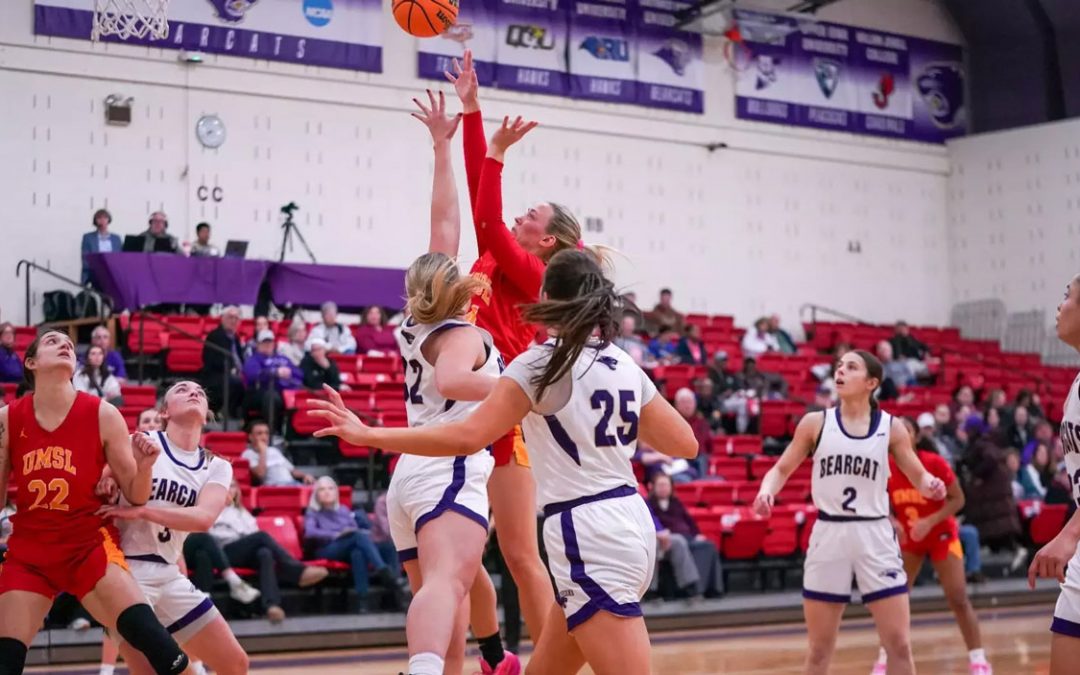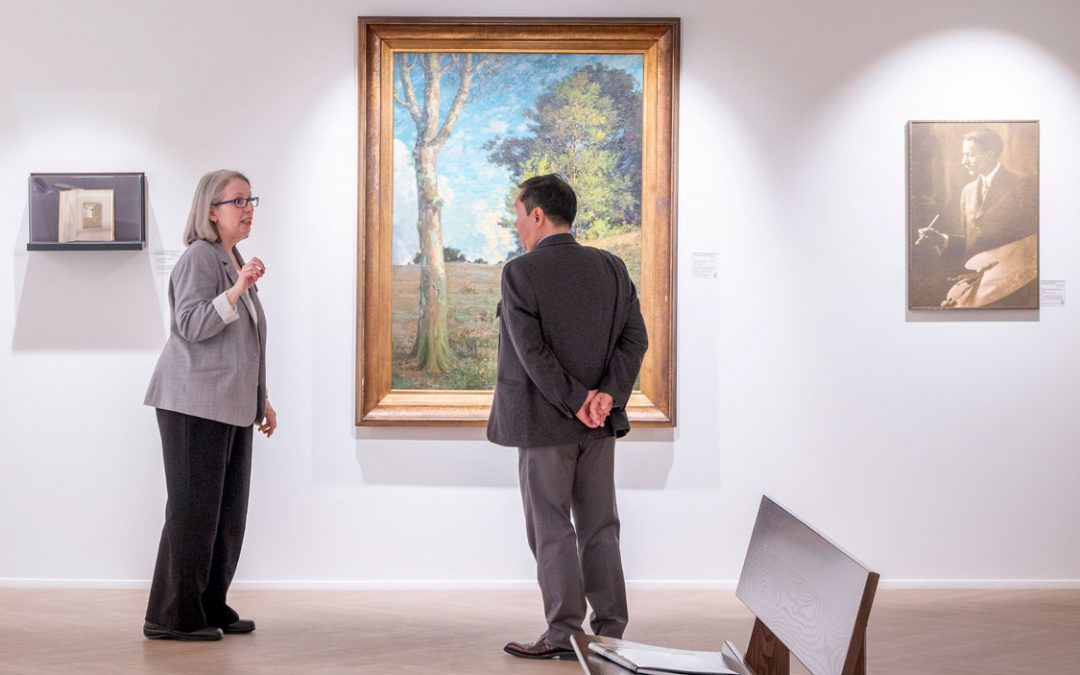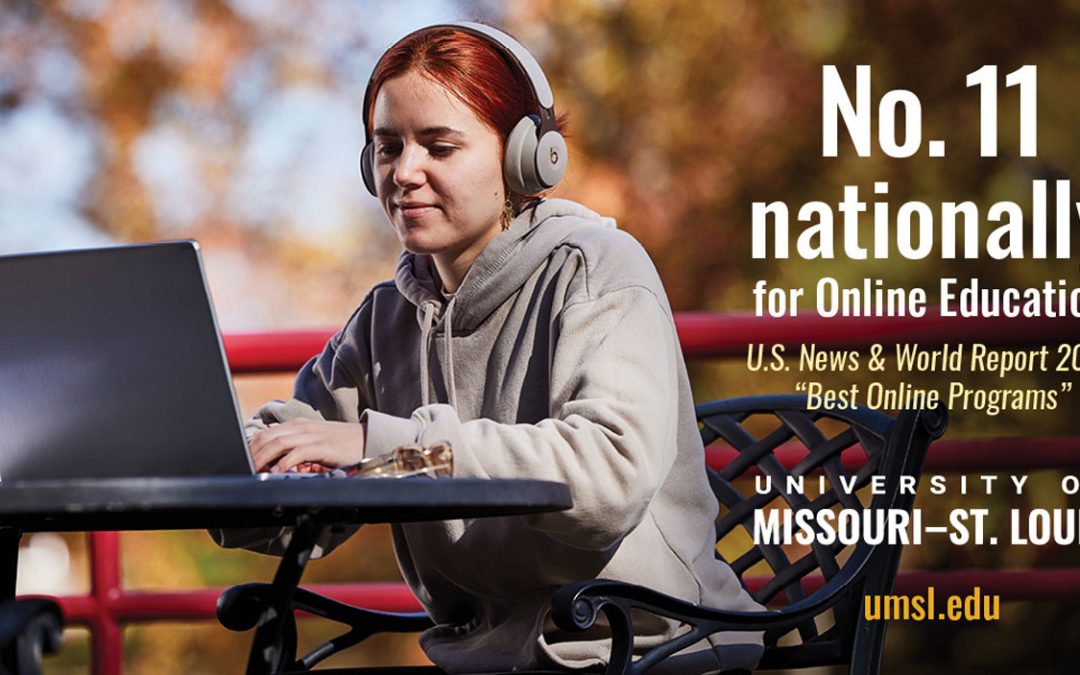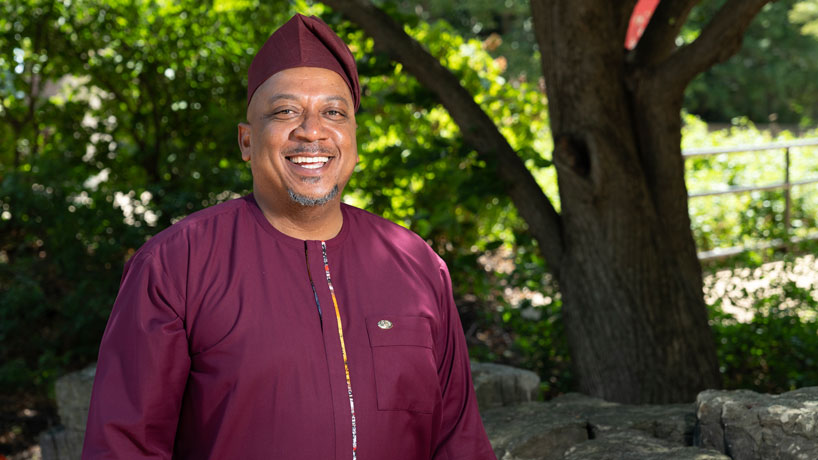
Damon Walker, assistant teaching professor of information systems and technology, has traveled to West Africa four times to teach farmers and those who train farmers on how to better utilize technology to run farms and track data. (Photo by Derik Holtmann)
If you’re a chocolate-lover, it’s likely your sweet treats could be coming from West Africa, which produces two-thirds of the world’s cocoa crop. Though production is high, some farms and farmers still need assistance utilizing technology to make their systems more efficient.
That is where Damon Walker comes in.
Walker, an assistant teaching professor of information systems and technology and alumnus of the University of Missouri–St. Louis, has been working as a volunteer in West Africa with farmers and those who train farmers to help them gain computer and technology skills to run farms more efficiently.
Walker began traveling to Africa in 2017 when he was an UMSL student pursuing his bachelor’s degree in information systems and technology. He found out about the opportunity from one of his cybersecurity professors, Maurice Dawson.
“He often talked about these volunteer trips to Africa, and asked me if I’d be interested in going,” Walker said.
Dawson couldn’t make a trip he’d planned to Guinea’s capital, Conakry, that was coordinated and funded through the organization Winrock International. The global nonprofit works to empower the disadvantaged, increase economic opportunity and sustain natural resources with agriculture as part of its mission. The professor looked to Walker to fill in and go to Africa to help trainers in the Department of Agriculture teach farmers and fishermen how to use Microsoft Office.
“He called me one day and asked if I was still interested. I told him, ‘Yes,'” Walker said. “And then 30 minutes later, I got a phone call from the Winrock organization, basically telling me, ‘Congratulations, you’re going to Africa.’”
From the first moment Walker arrived in West Africa, he was taken by the experience and wanted to return. The next summer, in 2018, he traveled to Senegal to help a technical school learn web design and database management to attract talent and keep track of alumni.
In 2019 Walker traveled to Benin, where he showed farmers how to use mobile devices to collect data. He did the same kind of work this year in Lagos, Nigeria, teaching classes of between 16 and 20 people.
“I was working with farmers, fishermen and even people that have livestock,” Walker said. “They want to sell these products to the market, but they need to keep track of inventory. They were using paper to get this information back to the central locations, but by the time they get it from the remote location to the central location, the items may have spoiled. So the best way to collect information is to digitize it; that way, they can get information in real-time.”
Another difficulty for farm workers is being in remote locations without internet access. Walker helped them choose and learn software that can collect the information to be transmitted more effectively when internet access is available. The software Walker helped them select is more efficient, allows farmers to answer more than one question at a time and transmits information faster.
Dawson escorted four students in 2016 and two on a different trip in 2017, and Walker plans to invite students in the future to observe and learn how to conduct this type of training.
To measure outcomes, Walker administers a survey before and after the training. He has received feedback indicating that the use of more effective technology has helped farm workers keep more accurate records and relay information to other locations quicker, which helps get items to the market.
“There were people that reached out to me stating that because of their training, they feel comfortable enough to teach other people,” Walker said.
Walker not only gets gratification from helping farmers manage their products, but also from experiencing Africa and connecting with the people. The support Walker provided impacted them so deeply that he was even invited to two weddings.
“It was very nice, very colorful,” he said. “A lot of food, a lot of partying – spirited movements. A lot of happy people. I’ve never seen anything like it. Those weddings are huge.”
Walker also got an opportunity to meet Nike Davis-Okundaye, the owner of an art gallery who is also an artist specializing in textile design. He wanted a photo with her and she more than accommodated him by getting her team to dress him in traditional African garb for the picture.
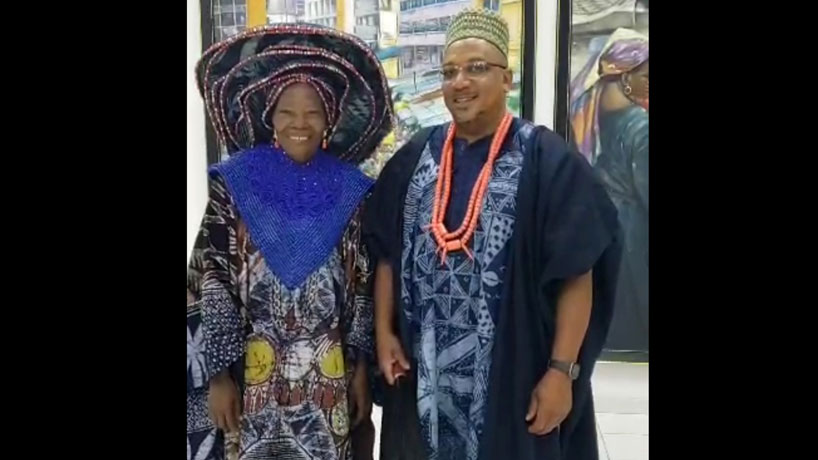
Walker stands with artist Nike Davis-Okundaye in her gallery in West Africa. (Photo provided by Damon Walker)
The trips to Africa overall are about connection. Walker helped farmers and trainers connect the dots to better utilize technology and further the agribusiness and Walker himself connected to his roots. He even crossed paths with UMSL colleague and Associate Professor Temidayo Akenroye at the airport.
In addition to exercising his knowledge as a professor, going to Africa to teach allowed Walker to experience the cultural bridge connecting Africans and African Americans.
“A lot of people would come up to me and tell me, ‘Welcome home.’”




